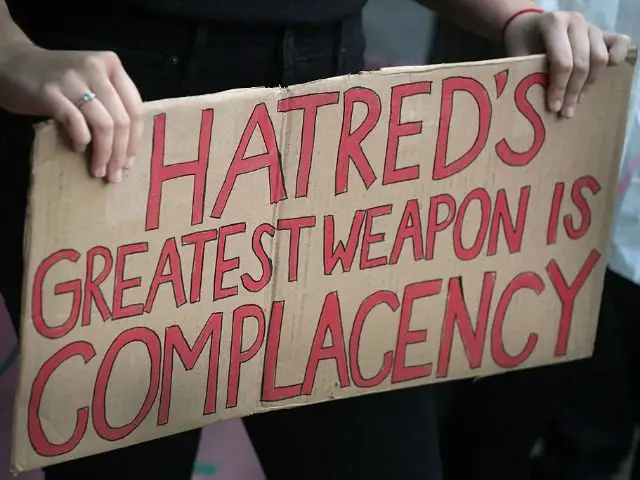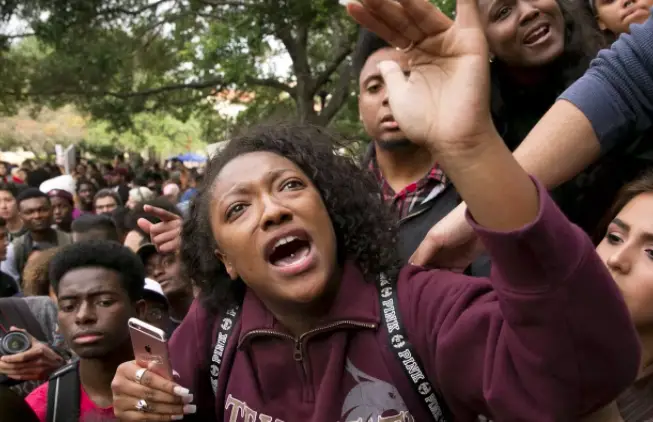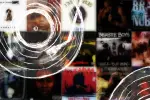In a polarized country with brewing racial tensions, Texas State University students struggle to solve issues while battling for their voice to be heard from campus leaders and administrators.
As a result, Texas State has been listed as one of the Foundation for Individual Rights in Education’s (FIRE) top 10 worst universities for freedom of speech. Texas State University has faced several racial scandals that have stretched students like rubber bands until they finally snapped on student body president, Connor Clegg.
Most recently, Texas State students called for the resignation of student body president Connor Clegg after discovering what critics have called racist posts on social media. One picture on Instagram from 2014 included a picture of an Asian group with the hash tags: “pearl harbor was bad,” “assholes,” “selfie bomb revenge” and “got their ass.”
Several minority groups on campus organized a protest and public forum to express their dissatisfaction with how the campus handles threats against minorities and to remove Clegg from his position.
Over 400 protesters filed into the LBJ Teaching theater chanting, “Connor Clegg has got to go!” Clegg stood uneasily in front of the room as students waited in line with two minutes to speak each and vent their frustrations to him directly.
The student who wrote the articles of impeachment exclaimed, “students are afraid to come here because of the constant threat of violence, consistent threat of racism and abuse of power from our representatives.”
A dominant theme throughout all of the student’s speeches was that of minorities living in fear, the lack of opportunities to express their fear and the administration being ambivalent about it.
A large number of students who took the time to be at the forum, finally vocalizing their frustration, proves the forum was long overdue. After three hours of students yelling at Clegg one by one, he responded at the end of the night by saying, “I-I am going to take what everybody told me and I am going to go home and pray on it tonight.”
This is not an isolated offense on the Texas State campus, but it begs the question of what public official’s freedoms of speech are via personal social media. Should leaders be thrown from their position for offensive posts?
Trump is the president of unpopular tweets through a democrat’s eyes, but that is not grounds to impeach him. This debate is only just becoming a necessity; this era is essentially the guinea pig to understand boundaries and consequences of social media outlets.
Additionally, college students across the country are uneasy in the political climate; this needs to be addressed by college administration. Without addressing these issues, the consequence will be further protests like Texas State students, who were brimming with frustration which finally overflowed into a police-assisted 3-hour shouting and anger-filled forum.

Last semester, the Texas State campus experienced a number of instances of racial intimidation on campus. First, a photo was posted via twitter from an anonymous bot account who photo shopped a student’s face onto the picture of a man being lynched; minimal action was taken from the university.
Then, the campus had white supremacist flyers posted on campus from the neo-Nazi group, Patriot Front, who has an ongoing campaign of posting these flyers on college campuses. The flyers planted a seed of fear in students.
In response, University President Denise Trauth sent an email about the flyers, underplaying their gravity by simply saying the flyers had been removed and were not posted by students, but from outsiders. Texas State’s policy claims that posting flyers on a public campus is a right afforded to people, yet their campus police removed the flyers.
Soon after this incident, a banner was placed over the campus library that red, “AMERICA IS A WHITE NATION.” The banner was immediately removed after the university was notified, but the identity of who hung the banner remains unknown.
Students were deeply offended and filled with fear. As a result, they demanded further action be taken on people who posted the white supremacist flyers, going as far as to demand their arrest. Students criticized Trauth for what critics called “weak email” responses, voicing their wish for her impeachment because of her lack of activism towards issues on campus.
These students essentially want to limit the freedom of speech of white supremacist groups when, in reality, racists have as much freedom as non-racists. Although hate speech is unethical, it is not illegal or should be censored.
College students should be aware of the realities beyond university gates and consider the difference between KKK member posting flyers and a KKK member physically harming a student. Without a doubt, the flyers are meant to strike fear and, unfortunately, they are granted the first amendment.
In response to the rising racial tensions on campus, an opinion columnist for the campus paper, Rudy Martinez, wrote an opinion article called, “Your DNA is an Abomination.” “Whiteness will be over because we want it to be,” Martinez wrote. “Until then, remember this: I hate you because you shouldn’t exist. You are both the dominant apparatus on the planet and the void in which all other cultures, upon meeting you, die.”
The article became a scandal, dividing the campus; some claimed it was reverse racism while others said it was an ill-executed satire against white supremacy. Student Body President, Connor Clegg, responded by threatening to defund the campus paper because it does not “align with the core beliefs of this university” and that it was “necessary to ensure tuition dollars do not go to funding this behavior.”
Additionally, there was a petition to defund the campus independent paper, University Star. As a result, a committee board was suggested to review the editorial process of the University Star.
The Foundation for Individual Rights in Education (FIRE), a nonprofit group striving to sustain the individual rights at America’s colleges and universities, took notice. A letter, sent out by FIRE, provided a detailed analysis stating that defunding the University Star is a violation of the first right amendment.
In addition, removing the article despite it offending, alarming and arousing based on race or ethnicity is not means to remove speech from protection under the first amendment. The review committee would also be an infringement on press freedoms.
The events on the Texas State campus are a microcosm of the country in its current state; the issue proposes several questions on the freedom of speech for racist material. Texas State administration and U.S. leaders are faced with a rising dilemma which can’t be put off much longer.

















